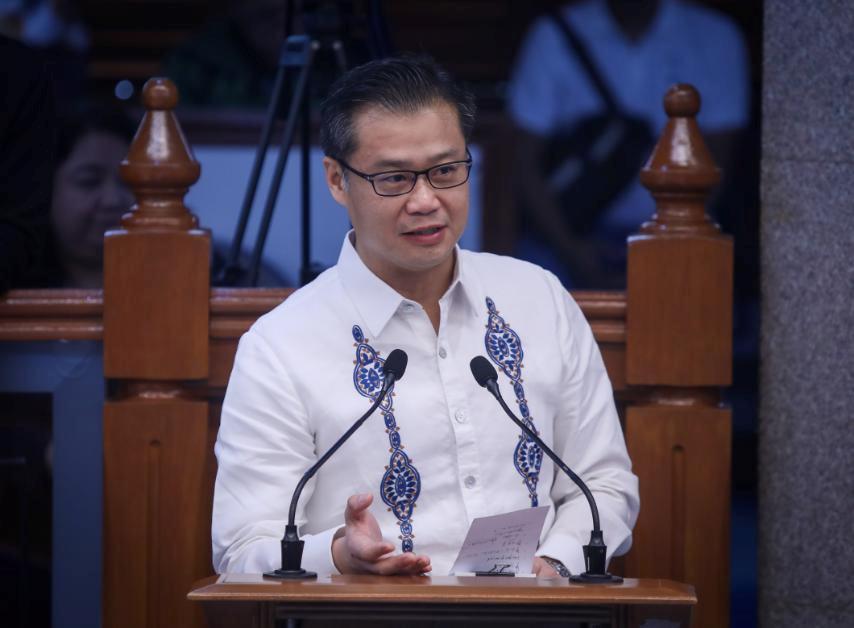Gatchalian raises need to shorten transition to old school calendar
By HANA BORDEY, GMA Integrated News Published April 4, 2024 2:33pm Senator Sherwin Gatchalian on Thursday raised the need to study the shortening of the transition period to revert to the old school calendar. The chairman of the Senate basic education committee made the remark amid the suspension of classes in public schools due to […]


By HANA BORDEY, GMA Integrated News
Senator Sherwin Gatchalian on Thursday raised the need to study the shortening of the transition period to revert to the old school calendar.
The chairman of the Senate basic education committee made the remark amid the suspension of classes in public schools due to the extreme hot weather.
“Ang weather kasi ngayon hindi na ma-predict e at ang trend na nakikita ko painit… Noong mga unang panahon ‘di naman pumapalo ng 40 [degrees celcius] ‘yung panahon. But this time around, 40 is the new normal,” Gatchalian said at the Kapihan sa Senado forum.
(Nowadays, the weather can no longer be predicted, and the trend we see is that the weather is getting hotter. Back in our days, the weather did not reach 40 degrees Celsius. But this time around, 40 degrees Celsius is the new normal.)
“The shorter the transition, the better at isa ‘yan sa titignan natin at kung kakayanin ire-recommend sa [Department of Education] na i-shorten ang transition,” he added.
(The shorter the transition, the better, and that is one of the things we should study and, if possible, recommend to DepEd.)
While he admitted that reverting to the old school calendar cannot be done in an instant, Gatchalian said this recommendation should be considered so students won’t encounter the same problem next year.
“Aminado ako na ‘di kaya ng instant. Kung instant kasi may isang year na wala tayong academic break. Let’s see if we can shorten it para hindi umabot sa ganong sitwasyon,” he said.
(I admit that it cannot be done in an instant because if we implement it in an instant, there will be one academic year where students won’t have an academic break. Let’s see if we can shorten it so we will not be placed in such a situation.)
It was in March last year when Gatchalian said it is high time to bring back the April to May summer vacation.
He also commissioned a Pulse Asia Survey in June 2023 which showed that eight out of 10 Filipinos are in favor of bringing back students’ summer vacation to April and May.
In February this year, DepEd announced that the end of the school year 2023-2024 will be earlier than scheduled to gradually shift back to the old school calendar with April-May as the summer vacation.
Gatchalian also called on the school heads not to force children to go to school as this might cause heat exhaustion among the students.
For workers, Gatchalian also recommended giving them “flexibility” during the summer season, especially those who are working outdoors, like traffic enforcers, construction workers, and street sweepers, among others.
Energy
Meanwhile, Gatchalian, who is also the vice chairman of the Senate committee on energy, said he is not convinced that the country has enough energy supply for the dry season.
In his monitoring of energy supply nationwide, Gatchalian said data showed that the country has less than 500 megawatts which is far from the “comfortable level” of 1,200 megawatts.
“Di ako kumbinsido…Itong next two months– April, May, kung ang temperatura ay aabot ng 45 [degrees celsius] and ganyang level, sigurado ako na tataas ang konsumo ng kuryente at pag tumaas ang konsumo ng kuryente, maliit ang margin natin, magkakaroon tayo ng brownout,” he said.
(I am not convinced. In the next two months, if the temperature reaches 45 degrees Celsius, the consumption of energy will also rise, and we might have brownouts.)
He then told the Department of Energy to form an El Niño Task Force to ensure coordination among power plants, distribution utilities and the National Grid Corporation of the Philippines.
Gatchalian suggested power plants to defer their scheduled maintenance to June or July, the NGCP to ensure complete ancillary reserves, and for big companies to secure generators.
“We have to prepare for the worst dahil kapag walang kuryente, mas mahirap naman para sa lahat,” he said.
(Having no electricity would be difficult for everybody.) —VAL, GMA Integrated News














